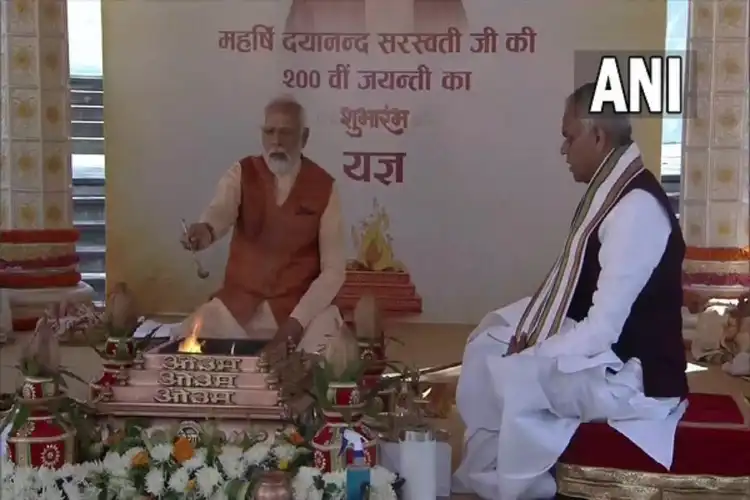Prime Minister Narendra Modi recently highlighted the legacy of Maharshi Dayanand, who he says fought against discrimination against women in society and started a program for women’s education 150 years ago. This article will examine Maharshi Dayanand’s life and teachings, as well as the historical context of women’s education in India, to assess the accuracy of the Prime Minister’s statement.
Maharishi ji protested the discrimination against women in society.
He started the programme for women’s education. It was around 150 years ago that he stood against these vices.
– PM @narendramodi pic.twitter.com/E6jHOsncxh
— BJP (@BJP4India) February 12, 2023
Maharshi Dayanand Saraswati, a Hindu reformer and founder of the Arya Samaj, lived from 1824 to 1883. The Arya Samaj, a Hindu revivalist movement, aimed to promote Vedic teachings and reject idolatry and superstition. To this day, the Arya Samaj remains an influential organization.
When it comes to women’s education, Dayanand strongly advocated for women’s rights and education. He believed that women should have equal access to education and the opportunity to reach their full potential. Dayanand emphasized that women’s education was crucial for society’s development and argued that women’s liberation was necessary for all humanity’s liberation. He also called for the elimination of social and cultural practices that restricted women’s freedom, such as child marriage and the veil.
However, it’s important to remember that Dayanand’s views on women’s education and rights were progressive for his time but still reflected the patriarchal attitudes prevalent in India in the 19th century. For instance, while Dayanand advocated for women’s education, he believed that women’s primary role was in the household and that education should primarily prepare them to become better wives and mothers. Furthermore, while Dayanand criticized some forms of discrimination against women, such as sati (widow immolation), he did not challenge patriarchal structures in Indian society.
Regarding the program for women’s education that the Prime Minister mentioned, it’s unclear what he specifically referred to. The Arya Samaj did establish schools for girls and emphasized women’s education, but it’s uncertain whether this qualifies as a “program.” It’s important to acknowledge that progress in women’s education in India in the late 19th and early 20th centuries resulted from a broader social and political movement, not just from Dayanand or the Arya Samaj.
While Maharshi Dayanand was a strong advocate for women’s education and rights, the Prime Minister’s statement requires clarification and contextualization. Dayanand’s views on women’s education were progressive for his time, but they still reflected the patriarchal attitudes in Indian society in the 19th century. Efforts to promote women’s education in India at that time came from a broader social and political movement, not just from one individual or organization.


